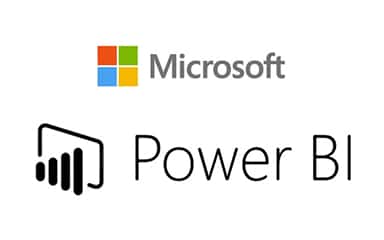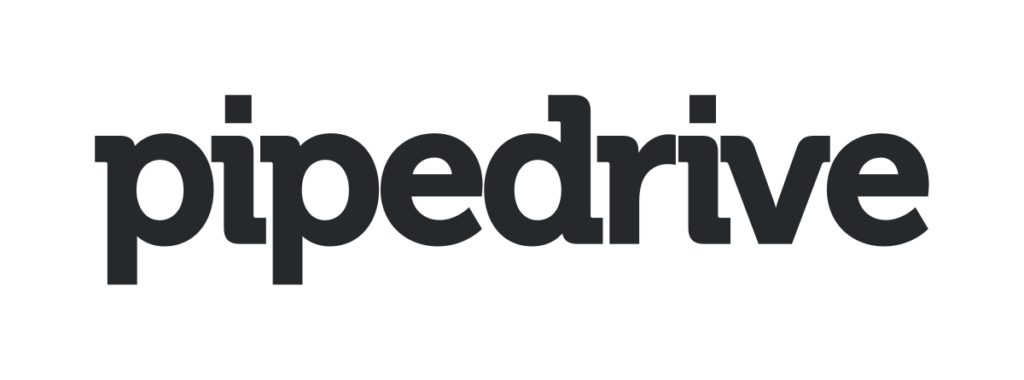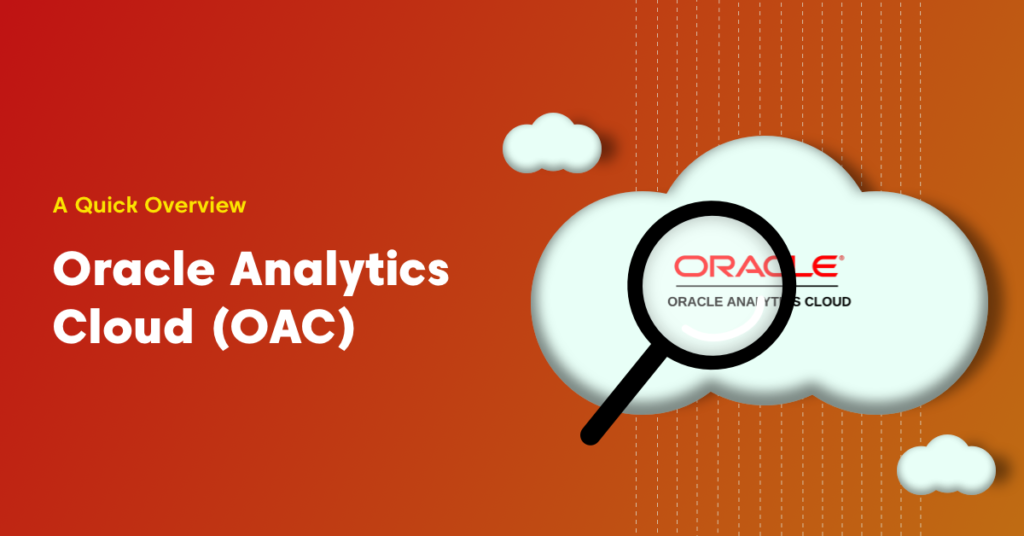Business Intelligence Tools You Need to Know About for 2023
As we move further into the data-driven era, business intelligence (BI) tools have become essential for organizations to stay competitive. In 2023, there are a variety of BI tools that businesses should consider, including Microsoft Power BI, Tableau, QlikSense, Zoho Analytics, Oracle Analytics Cloud, Dundas BI, and Pipedrive. These tools offer a range of features such as data visualization, self-service analytics, collaboration, advanced analytics, and integration with other tools. Each tool has its own strengths and weaknesses, so it’s important to evaluate your business needs and choose a tool that best fits those needs. By utilizing these BI tools, businesses can gain insights into their data and make informed decisions that drive growth and success.
Business Intelligence Software
Business intelligence software is a type of software that enables businesses to collect, process, and analyze large amounts of data to gain insights and make informed decisions. Business intelligence software can provide valuable insights into customer behavior, market trends, and operational performance, helping businesses identify opportunities for growth and improvement.
Here are some of the key features and benefits of business intelligence software:
- Data visualization: Business intelligence software can present data in visual formats such as charts, graphs, and maps, making it easier to understand and analyze.
- Data integration: Business intelligence software can pull data from multiple sources and integrate it into a single dashboard, allowing businesses to view all their data in one place.
- Real-time reporting: Business intelligence software can provide real-time updates on key metrics, enabling businesses to make quick decisions based on current data.
- Predictive analytics: Business intelligence software can use machine learning and artificial intelligence to analyze historical data and make predictions about future trends.
- Cost savings: Business intelligence software can help businesses identify inefficiencies and optimize their operations, leading to cost savings.
- Improved decision-making: Business intelligence software provides businesses with the data and insights they need to make informed decisions, leading to better outcomes.
Examples of popular business intelligence software include Tableau, Power BI, QlikView, SAP BusinessObjects, Looker, Domo, and Sisense. Each software has its unique features and benefits, so it’s important to choose the one that best meets your business needs.
Why Use Business Intelligence Software?
Business intelligence software is becoming increasingly important for businesses of all sizes and industries. Here are some of the reasons why businesses use business intelligence software:
- Gain insights into customer behavior: Business intelligence software can help businesses understand their customers better by analyzing customer data, such as purchase history, demographics, and browsing behavior.
- Monitor business performance: Business intelligence software can provide businesses with real-time insights into key performance metrics, such as sales, revenue, and customer satisfaction.
- Identify trends and patterns: Business intelligence software can analyze large amounts of data to identify trends and patterns, allowing businesses to make data-driven decisions.
- Improve decision-making: Business intelligence software provides businesses with the data and insights they need to make informed decisions, leading to better outcomes.
- Optimize operations: Business intelligence software can help businesses identify inefficiencies and areas for improvement in their operations, leading to cost savings and increased efficiency.
- Stay competitive: Business intelligence software can help businesses stay competitive by providing insights into market trends, customer preferences, and competitor activity.
Overall, business intelligence software is an essential tool for businesses that want to leverage their data to gain a competitive advantage, improve their operations, and make informed decisions.
Business intelligence tools are essential for businesses to analyze data and gain insights into their operations. Here are some of the top BI tools that you should know about for 2023:
1. Microsoft Power BI
Microsoft Power BI is a cloud-based business intelligence platform that provides a suite of data analytics tools to businesses. It allows users to connect to a wide range of data sources, including cloud-based and on-premises sources, and transform raw data into visual reports, interactive dashboards, and compelling data visualizations.
Power BI provides users with a drag-and-drop interface, making it easy for non-technical users to create reports and visualizations without requiring extensive technical knowledge. It also integrates with other Microsoft products, such as Excel, SharePoint, and Teams, allowing users to access data from various sources and collaborate on reports and dashboards.
Some of the key features of Microsoft Power BI include:
- Data visualization: Power BI provides a wide range of visualizations, including charts, graphs, maps, and gauges, making it easy to represent data in a way that is easy to understand.
- Data modeling: Power BI allows users to create relationships between tables and create calculated fields, allowing users to create complex data models.
- Data exploration: Power BI allows users to drill down into data and explore it in detail, allowing users to gain insights into their data.
- Data sharing: Power BI allows users to share reports and dashboards with others within their organization, allowing teams to collaborate on data analysis.
- Mobile support: Power BI provides mobile apps for iOS, Android, and Windows devices, allowing users to access data and reports from anywhere.
Overall, Microsoft Power BI is a powerful and flexible business intelligence platform that can help businesses of all sizes gain insights into their data and make informed decisions. It is a cost-effective solution that provides users with a wide range of tools and features to create compelling data visualizations and reports.

2. Pipedrive
Pipedrive is a customer relationship management (CRM) software designed for small and medium-sized businesses. It provides businesses with a platform to manage their sales process, automate tasks, and track their progress. Pipedrive is known for its user-friendly interface, customizable pipeline management, and reporting capabilities.
Some of the key features of Pipedrive include:
- Pipeline management: Pipedrive provides a visual pipeline that allows users to manage their sales process and track the progress of deals through each stage.
- Lead management: Pipedrive allows users to capture and track leads from various sources and manage them throughout the sales process.
- Task automation: Pipedrive provides a range of automation tools that allow users to automate repetitive tasks, such as sending emails and updating records.
- Customizable reports: Pipedrive provides customizable reporting capabilities that allow users to track sales performance and gain insights into their sales process.
- Integration with other tools: Pipedrive integrates with a wide range of other tools, such as Google Workspace, Mailchimp, and Trello, allowing users to streamline their workflow.
Overall, Pipedrive is a powerful and flexible CRM solution that can help businesses manage their sales process more effectively. Its user-friendly interface, customizable pipeline management, and automation tools make it a popular choice for small and medium-sized businesses.

3. QlikSense
QlikSense is a cloud-based business intelligence and data visualization platform developed by Qlik. It allows businesses to connect to multiple data sources, transform raw data into visualizations, and create interactive dashboards to gain insights into their data.
Some of the key features of QlikSense include:
- Data exploration: QlikSense provides a powerful data exploration engine that allows users to drill down into their data and uncover insights.
- Data visualization: QlikSense provides a wide range of data visualization options, including charts, graphs, and maps, allowing users to represent their data in a way that is easy to understand.
- Data storytelling: QlikSense allows users to create data stories by combining visualizations and other content, such as text and images, to communicate insights effectively.
- Collaboration: QlikSense provides collaboration features that allow users to share insights with others within their organization and work together on analysis.
- Security: QlikSense provides enterprise-grade security features, including multi-factor authentication, data encryption, and access controls.
Overall, QlikSense is a powerful and flexible business intelligence platform that can help businesses gain insights into their data and make informed decisions. Its advanced data exploration capabilities, flexible data visualization options, and collaboration features make it a popular choice for businesses of all sizes and industries.

4. Zoho Analytics
Zoho Analytics is a cloud-based business intelligence and analytics platform developed by Zoho. It provides businesses with a suite of data visualization and reporting tools to help them make informed decisions. Zoho Analytics allows businesses to connect to multiple data sources, including cloud-based and on-premises sources, and create interactive dashboards, reports, and charts.
Some of the key features of Zoho Analytics include:
- Data visualization: Zoho Analytics provides a wide range of data visualization options, including charts, graphs, and pivot tables, allowing users to represent their data in a way that is easy to understand.
- Data blending: Zoho Analytics allows users to blend data from multiple sources to create comprehensive reports and dashboards.
- Data analysis: Zoho Analytics provides a range of data analysis tools, including forecasting, trend analysis, and regression analysis, allowing users to gain insights into their data.
- Collaboration: Zoho Analytics provides collaboration features that allow users to share reports and dashboards with others within their organization and work together on analysis.
- Integration with other tools: Zoho Analytics integrates with other Zoho products, as well as third-party tools, such as Google Drive and Salesforce, allowing users to streamline their workflow.
Overall, Zoho Analytics is a powerful and flexible business intelligence platform that can help businesses gain insights into their data and make informed decisions. Its wide range of data visualization and analysis tools, collaboration features, and integration options make it a popular choice for businesses of all sizes and industries.

5. Tableau
Tableau is a popular business intelligence and data visualization platform that allows businesses to connect to multiple data sources, transform raw data into interactive visualizations, and create dashboards and reports. Tableau is known for its user-friendly interface, powerful data visualization capabilities, and flexible deployment options.
Some of the key features of Tableau include:
- Data exploration: Tableau provides a powerful data exploration engine that allows users to drill down into their data and uncover insights.
- Data visualization: Tableau provides a wide range of data visualization options, including charts, graphs, and maps, allowing users to represent their data in a way that is easy to understand.
- Data blending: Tableau allows users to blend data from multiple sources to create comprehensive reports and dashboards.
- Collaboration: Tableau provides collaboration features that allow users to share reports and dashboards with others within their organization and work together on analysis.
- Integration with other tools: Tableau integrates with a wide range of other tools, such as Salesforce and Google Analytics, allowing users to streamline their workflow.
Overall, Tableau is a powerful and flexible business intelligence platform that can help businesses gain insights into their data and make informed decisions. Its advanced data exploration capabilities, flexible data visualization options, and collaboration features make it a popular choice for businesses of all sizes and industries.

6. Oracle Analytics Cloud
Oracle Analytics Cloud is a cloud-based business intelligence platform that provides businesses with a suite of data visualization and reporting tools to help them make informed decisions. Oracle Analytics Cloud allows businesses to connect to multiple data sources, including cloud-based and on-premises sources, and create interactive dashboards, reports, and charts.
Some of the key features of Oracle Analytics Cloud include:
- Data visualization: Oracle Analytics Cloud provides a wide range of data visualization options, including charts, graphs, and pivot tables, allowing users to represent their data in a way that is easy to understand.
- Data blending: Oracle Analytics Cloud allows users to blend data from multiple sources to create comprehensive reports and dashboards.
- Self-service analytics: Oracle Analytics Cloud provides a user-friendly interface that allows non-technical users to create their own reports and dashboards.
- Collaboration: Oracle Analytics Cloud provides collaboration features that allow users to share reports and dashboards with others within their organization and work together on analysis.
- Advanced analytics: Oracle Analytics Cloud provides a range of advanced analytics tools, including predictive analytics and machine learning, allowing users to gain insights into their data.
Overall, Oracle Analytics Cloud is a powerful and flexible business intelligence platform that can help businesses gain insights into their data and make informed decisions. Its wide range of data visualization and analysis tools, collaboration features, and self-service analytics capabilities make it a popular choice for businesses of all sizes and industries.

7. NetSuite
NetSuite is a cloud-based business management software suite that provides businesses with a range of integrated applications, including enterprise resource planning (ERP), customer relationship management (CRM), and e-commerce tools. NetSuite also offers business intelligence and analytics capabilities to help businesses gain insights into their data and make informed decisions.
Some of the key features of NetSuite’s business intelligence and analytics capabilities include:
- Real-time data insights: NetSuite provides real-time access to critical business data, allowing businesses to make informed decisions quickly.
- Pre-built dashboards and reports: NetSuite provides pre-built dashboards and reports that allow users to easily monitor key performance indicators (KPIs) and track progress towards business goals.
- Customizable reporting: NetSuite allows users to create custom reports and dashboards that are tailored to their specific business needs.
- Advanced analytics: NetSuite provides advanced analytics tools, such as predictive analytics and machine learning, that allow users to gain deeper insights into their data.
- Integration with other tools: NetSuite integrates with a wide range of other tools, such as Salesforce and Microsoft Office, allowing users to streamline their workflow.
Overall, NetSuite is a comprehensive business management suite that provides businesses with a range of integrated applications and business intelligence capabilities. Its real-time data insights, customizable reporting, and advanced analytics tools make it a popular choice for businesses of all sizes and industries.

8. Dundas BI
Dundas BI is a powerful and flexible business intelligence and data analytics platform that provides businesses with a suite of data visualization and reporting tools to help them make informed decisions. Dundas BI allows businesses to connect to multiple data sources, transform raw data into interactive visualizations, and create dashboards and reports.
Some of the key features of Dundas BI include:
- Data exploration: Dundas BI provides a powerful data exploration engine that allows users to drill down into their data and uncover insights.
- Data visualization: Dundas BI provides a wide range of data visualization options, including charts, graphs, and maps, allowing users to represent their data in a way that is easy to understand.
- Self-service analytics: Dundas BI provides a user-friendly interface that allows non-technical users to create their own reports and dashboards.
- Collaboration: Dundas BI provides collaboration features that allow users to share reports and dashboards with others within their organization and work together on analysis.
- Integration with other tools: Dundas BI integrates with a wide range of other tools, such as Salesforce and Google Analytics, allowing users to streamline their workflow.
Overall, Dundas BI is a powerful and flexible business intelligence platform that can help businesses gain insights into their data and make informed decisions. Its advanced data exploration capabilities, flexible data visualization options, and collaboration features make it a popular choice for businesses of all sizes and industries.

Conclusion
In conclusion, the increasing importance of data-driven decision-making has made business intelligence tools essential for businesses of all sizes and industries. The BI tools discussed in this article, including Microsoft Power BI, Tableau, QlikSense, Zoho Analytics, Oracle Analytics Cloud, Dundas BI, and Pipedrive, provide businesses with a range of capabilities to gain insights into their data and make informed decisions. By carefully evaluating their needs and selecting the appropriate tool, businesses can leverage the power of BI to drive growth and success in 2023 and beyond.














